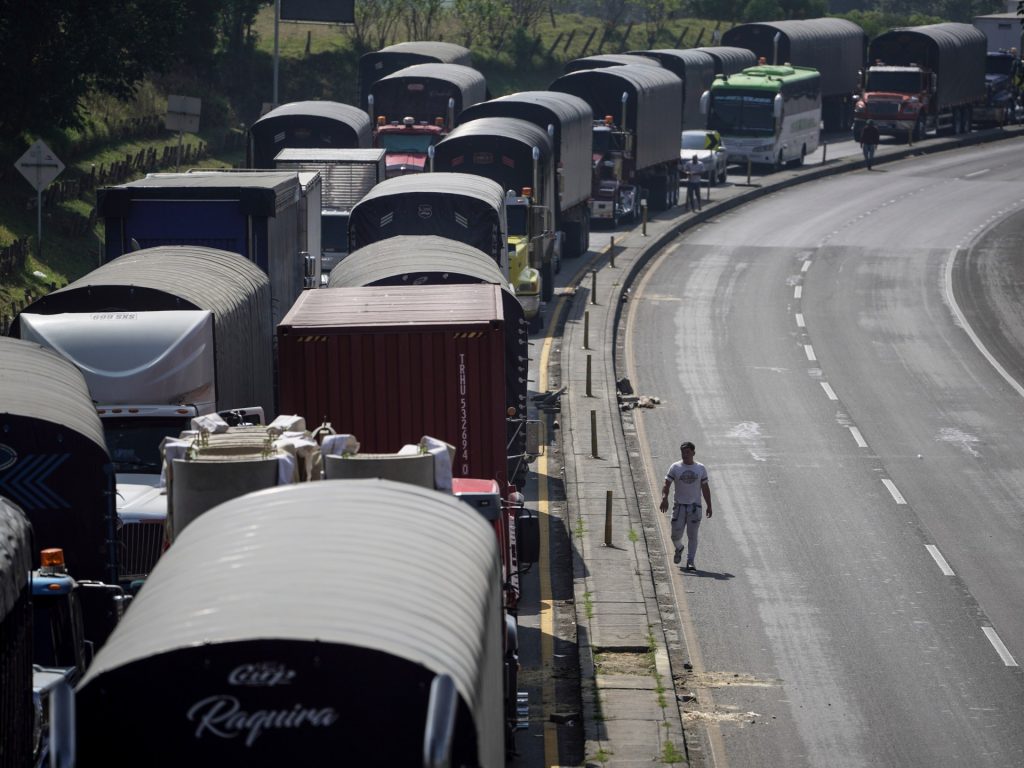Truckers in Colombia recently reached a deal with the government to lift a five-day road blockade that was initiated in protest against the end of COVID-era fuel subsidies. President Gustavo Petro announced the agreement on Friday in an effort to address concerns surrounding the elimination of diesel fuel subsidies that were introduced during the pandemic. The truckers unions argued that removing these subsidies would have a devastating impact on their businesses and led to fears of potential food and supply shortages in Colombia’s metropolitan areas.
The protest began after the government imposed a 50-cent increase per gallon on diesel fuel, leading to demonstrations and road blockades around the country that caused significant disruptions in transportation. The situation escalated on Tuesday, with police reporting 120 permanent blockages that snarled traffic and forced many individuals to rely on alternative modes of commuting such as walking or cycling to get to work. This led to concerns about food stocks running short and potential economic repercussions for various sectors.
President Petro, who is Colombia’s first leftist president and came into power in 2022, initially took a defiant stance against the truckers’ protests, stating that he would not allow unions to block the country. The diesel fuel subsidies cost the Colombian government approximately $240 million each month and were paid to the state oil company Ecopetrol, according to the Ministry of Finance and Public Credit. The government’s decision to phase out these subsidies was motivated by the need to address a widening budget deficit and allocate more funding to crucial areas such as education and healthcare.
As the standoff between the truckers and the government continued, the Ministry of Finance was preparing to present a tax reform plan to Congress aimed at increasing government revenues by $3 billion the following year. This plan included proposed increases in wealth taxes, taxes on non-wage personal income, and some sales taxes, including those on hybrid cars and online betting. President Petro has prioritized social welfare programs and substantially increased the government’s annual budget by 30 percent in his first two years in office, leading to concerns about the impact on the economy and the feasibility of these reforms.
Despite facing opposition and challenges in implementing his reforms, President Petro was able to negotiate an agreement with the truckers’ unions in the early hours of Friday, promising to gradually implement a slightly lower increase in fuel costs by the end of the year. The resolution of the strike was hailed by Petro as a swift and successful outcome, with images of truckers celebrating and unblocking roads across the country being broadcast in local media. The agreement marked a significant development in the ongoing tensions between the government and various sectors in Colombia, highlighting the complexities of balancing economic reforms with social welfare priorities.















